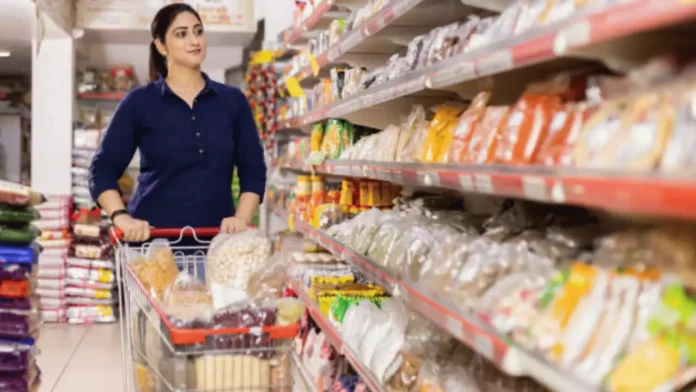Following a notable decrease in input material costs last year and subsequent price reductions affecting the value growth rate of the fast-moving consumer goods (FMCG) industry, consumer goods manufacturers have indicated a “moderate increase” of 2-4% in product prices for this year. This adjustment is anticipated to enhance the pace of growth within the sector.
Godrej Consumer Products, Dabur, and Emami have signaled that price-driven growth will return to the industry. Dabur has implemented a 2.5% price increase for its food portfolio, while Emami plans to implement around 3% price hikes this year.
Sudhir Sitapati, the managing director of Godrej Consumer Products, mentioned that commodity prices are currently stable to slightly increasing, and there’s a positive trend in wage inflation. As a result, product prices are expected to rise slightly in the upcoming quarters, leading to a high single-digit value growth for the industry this calendar year.
“The market growth rate will improve next fiscal,” he said.
Continue Exploring: NielsenIQ forecasts 4.5-6.5% growth for FMCG sector in FY24; volume surges by 6.4% in Q4 2023 as urban-rural gap narrows
Mohit Malhotra, the CEO of Dabur India, remarked that inflation is increasingly tilting towards food items. He pointed out that essentials like cereals and spices are still experiencing double-digit inflation, which is concerning. While there was a slight decrease at one point, it has since resurged, indicating ongoing volatility in prices.
“Even in honey, there is inflation. We have just taken a price increase in oral care, for example, driven by our competitor taking up the price increase. In healthcare, we might be forced to take price increases. Even in spices. So wherever the shoe will pinch, we will have to hike prices,” said Malhotra.
According to FMCG market researcher NielsenIQ, the industry witnessed a significant drop in price growth from 10% in calendar year 2022 to 2.7% in 2023. This decline can be attributed to the decrease in prices across various products last year. In 2022, there was unprecedented inflation in several FMCG input costs, ranging from palm oil to crude oil to packaging materials, driven by geopolitical factors. Despite overall demand remaining subdued, many companies have observed higher volume growth compared to value growth in recent quarters, primarily due to the price downturn.
In the past two years, the edible oil segment experienced remarkable price fluctuations but has witnessed improved price stability over the last 2-3 quarters. Sanjeev Asthana, the CEO of Patanjali Foods, informed analysts earlier this month that prices have remained stable to slightly higher in the past week.
Continue Exploring: FMCG giants roll out budget-friendly digital packs, targeting mass market
Approximately 65-70% of FMCG companies’ growth has been attributed to volume, while the remainder stemmed from price increases. However, in 2022, price hikes accounted for the entirety of their growth, as volumes either remained stagnant or declined for some companies. Following the cessation of price increases and the adjustment of price tags in response to moderating inflation, these companies anticipate an uptick in volumes.
Sanjay Agarwal, the Chief Financial Officer of Jyothy Labs, remarked that predicting geopolitical and macroeconomic situations has become increasingly challenging.
“So for now, it seems good, has come off from peak and margins — as what we are getting today, we are comfortable with that,” he said.





